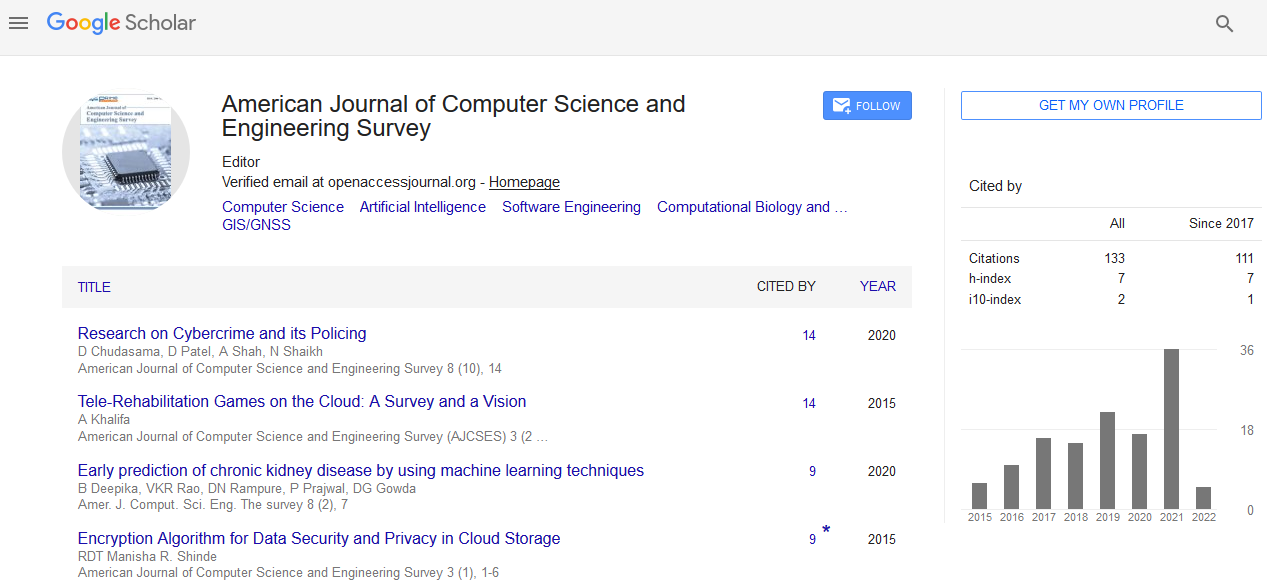Perspective - (2023) Volume 11, Issue 2
Fostering Digital Innovation Hubs: A Framework for Enhanced Learning
Anna Petrov*
Department of Computer Science, University of Bath, United Kingdom
*Correspondence:
Anna Petrov,
Department of Computer Science, University of Bath,
United Kingdom,
Email:
Received: 31-May-2023, Manuscript No. ipacses-23-17191 ;
Editor assigned: 02-Jun-2023, Pre QC No. ipacses-23-17191 (PQ);
, QC No. ipacses-23-17191;
Revised: 21-Jun-2023, Manuscript No. ipacses-23-17191 (R);
Published:
28-Jun-2023, DOI: 10.36846/2349-7238.23.11.18
Introduction
With the increasing demand for digital transformation and (digital)
technology transfer (TT), digital innovation hubs are the
new piece of the puzzle of our economy and industries’ landscapes.
Evidence shows that DIHs can provide good opportunities
to access needed innovations, technologies, and resources
at a higher level than other organizations that can normally access
them. However, it is critically important to note that DIHs
are still evolving, under research, and under development. That
is, there are many substantial aspects of DIHs that should be
considered. For example, DIHs must cater to a wide spectrum
of needs for TT. From this perspective, the contribution of this
work is proposing a generic and flexible learning framework,
aiming to assist DIHs in providing suitable education, training,
and learning services that support the process of (digital) TT to
companies. The proposed learning framework was designed,
evaluated, and improved with the support of two EU projects,
and these processes are discussed in brief.
Description
The primary and leading results gained in this way show that
the learning framework has immense potential for application
to similar cases, and it can facilitate and expedite the process of
TT to companies. The study is concluded with some directions
for future works Digital transformation has recently attracted
the attention of businesses and companies at a pace never
seen before. Digital transformation which is the integration
of digital technology into all areas of a business has become a
hallmark of business empowerment. In the digital sphere, digital
transformation and digital technology transfer have enabled
businesses and companies of all sizes to boost their competitiveness.
For example, they help businesses and companies to
increase their profitability, marketability, and agility; improve
their operational efficiency, the quality of products and services,
and collaboration within and across functions; leverage
their customer satisfaction into loyalty; drive sustainability
efforts; as well as reduce their costs and human error. Furthermore,
the processes of digital transformation and (digital)
technology transfer are very important for companies as they
provide access to specialized expertise, accelerate innovation,
enhance competitiveness, offer cost savings, enable flexibility
and adaptability, promote collaboration and partnerships, and
facilitate talent development. Through embracing digital transformation
and (digital) technology transfer, companies can
leverage external knowledge and resources to drive growth,
develop sustainability, stay ahead of the competition, and
thrive in the digital economy
Conclusion
Nowadays, a large number of universities around the world focus
more and more on these processes through transferring
knowledge, research outcomes, and intellectual property developed
within a university setting to the commercial sector or
other organizations for further development, application, and
utilization. The digital transformation and transfer of technology
aim to bridge the gap between academia and industry, fostering
innovation, economic growth, and societal impact. Despite
offering many opportunities, the process of transferring,
adapting, and integrating (digital) technologies might impose
various challenges and entail different organizational and technical
changes to businesses and companies. To respond to this
challenge, one potential solution is to take advantage of DIHs.
Citation: Petrov A (2023) Fostering Digital Innovation Hubs: A Framework for Enhanced Learning. Am J Comp Science. 11:18.
Copyright: © 2023 Petrova A. This is an open-access article distributed under the terms of the Creative Commons Attribution License, which permits unrestricted use, distribution, and reproduction in any medium, provided the original author and source are credited.

